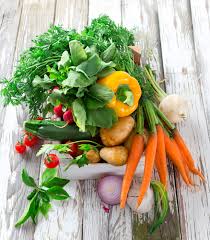A well-balanced diet provides an adequate intake of micronutrients, vitamins and minerals, that can boost our immune system.
Many studies point to their positive health effects, and specifically highlight the importance of vitamin C, D, and Zinc.
Vitamin C stimulates the body to increase its defenses against respiratory diseases. It’s found in citrus fruits (lemons, oranges), red fruits (currants and strawberries), kiwi, pineapple, cherries, watermelon, melon, and papaya. Green leafy vegetables are also rich in vitamin C: broccoli, cabbage, spinach, chard, turnip greens, rocket, lettuce, chicory, and parsley; as well as solanaceae like peppers and raw tomatoes.
Vitamin D also stimulates the immune system and prevents infections and lowers inflammation levels. 80% of it is obtained through sun exposure, while the other 20% is obtained from food. Foods rich in vitamin D are blue fish, such as mackerel, sardines, hering, anchovies, seas bass, tuna, salmon, and red mullet, as well as in eggs and mushrooms. Additionally, it can be found in dried fruits like almonds and walnuts, and in whole grains, beans, and green leafy vegetables.
Zinc plays an important role for the immune system: it promotes function of the thymus, especially against flu viruses, cooling symptoms, and bacterial infections of the respiratory tract. It is found mainly in shellfish and fish, whole grains, legumes (beans, lentils, chickpeas), dried fruit (almonds, walnuts, pine nuts, cashews and peanuts) and oilseeds (sesame, poppy, pumpkin and sunflower), as well as in mushrooms and cocoa.
Iron, Copper and Selenium also help us develop an efficient immune system.
Iron introduced in the diet is found in two forms: “heme” and “non-heme”. The first is present in animal products, such as liver, horse and beef red meats; as well as in blue fish (anchovies, sardines, anchovies, sea bass), seafood (clams, mussels and oysters), crustaceans, and egg (yolk). Non-heme iron, on the other hand, is present in plants and must be combined with vitamin C in order to be absorbed. Whole grains, legumes, especially lentils and beans, and green leafy vegetables, like rocket, spinach, parsley, and broccoli are rich in iron. Plums, raisins, apricots, and dates, as well as cashews and pistachios are good sources of iron. To best absorb it, it’s advised to combine these foods with vitamin C, such as lemon juice, tomatoes, peppers, and kiwis. Some substances, however, inhibit the absorption of iron: tea, coffee, chocolate, yogurt, cheese, and foods rich in calcium.
Copper stimulates the immune system since, in addition to promoting thyroid function, maintains an adequate amount of white blood cells, capable of fighting viruses and bacteria. It is found in molluscs, crustaceans, eggs, and meat, as well as in dried fruit (walnuts, almonds and hazelnuts), oilseeds (sunflower and pumpkin), legumes, whole grains, mushrooms, and cocoa.
Selenium, along with vitamin C, stimulates the immune system’s defenses, and can protect individuals against flu viruses, infections and seasonal diseases. It’s found in blue fish, molluscs, eggs, dairy products and red meat. Additionally, selenium is found in plant sources such as whole grains, legumes, dried fruit, oilseeds, mushrooms and vegetables.
Other vitamins that are important for the immune system are vitamins A, E and B-vitamins.
Vitamin A, in the form of retinol, along with carotenoids, acts as an antioxidant, boosts the immune system, and fights lung infections. The carotenoids are found in orange-red vegetables and fruits: carrots, squash, pepper tomatoes, apricots, peaches, melon, and medlars. As well as in green leafy vegetables and spices such as paprika. Retinol is found in blue fish, egg, yogurt, cheese and meat.
Vitamin E also helps support the immune system. It is found especially in dried fruit (almonds, hazelnuts and peanuts), oil seeds (sunflower, flax), green leafy vegetables, avocado, blackberries, chestnuts, olives and extra-virgin olive oil.
Finally we must mention the B-vitamins which are essential for the proper functioning of the immune system. They are found in fish, crustaceans, eggs, dairy products, meat, green leafy vegetables, whole grains, legumes, dried fruit, oilseeds. Vitamin B12 is found strictly in animal sources, so those who follow purely plant-based diets should consult a nutritionist for valid supplements that ward off their deficiency. Eating fish 2-3 times a week, together with legumes, many seasonal and possibly organic vegetables, whole grains and seasonal fruit, as suggested by the Longevity Diet, helps us give our body all the nutrients that it needs.




Reblogged this on Stimulife.blog.
Reading your article helped me a lot and I agree with you. But I still have some doubts, can you clarify for me? I’ll keep an eye out for your answers.